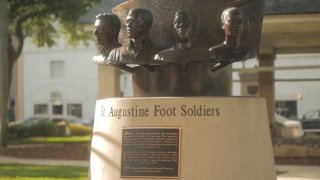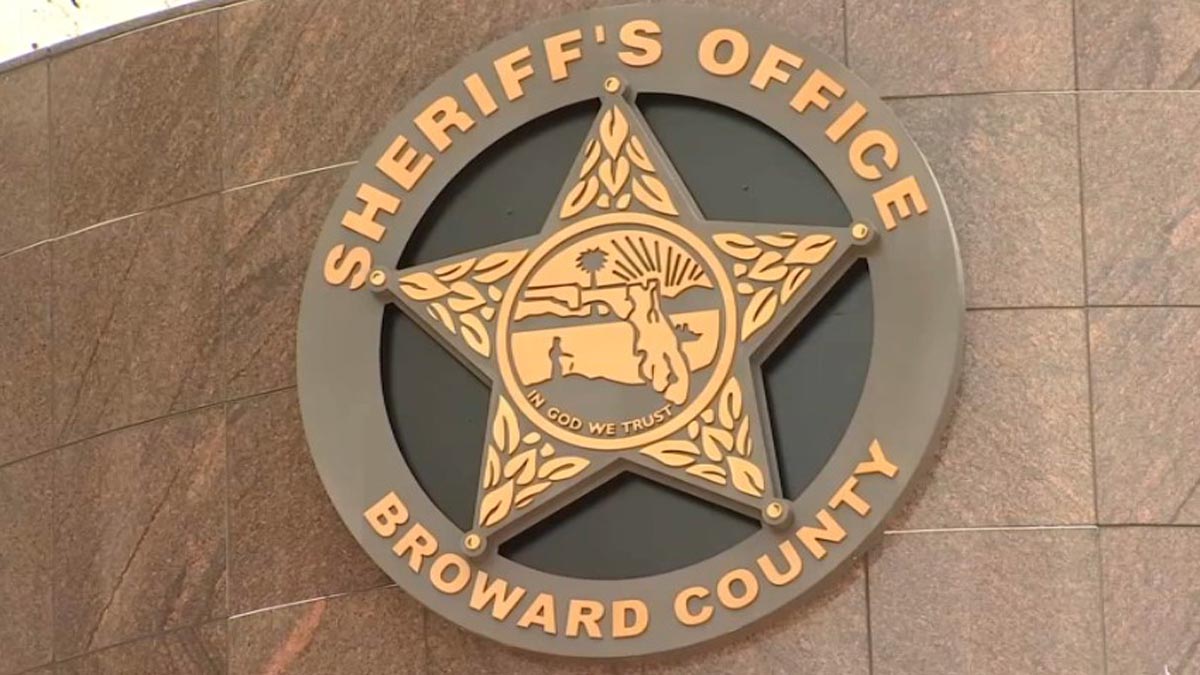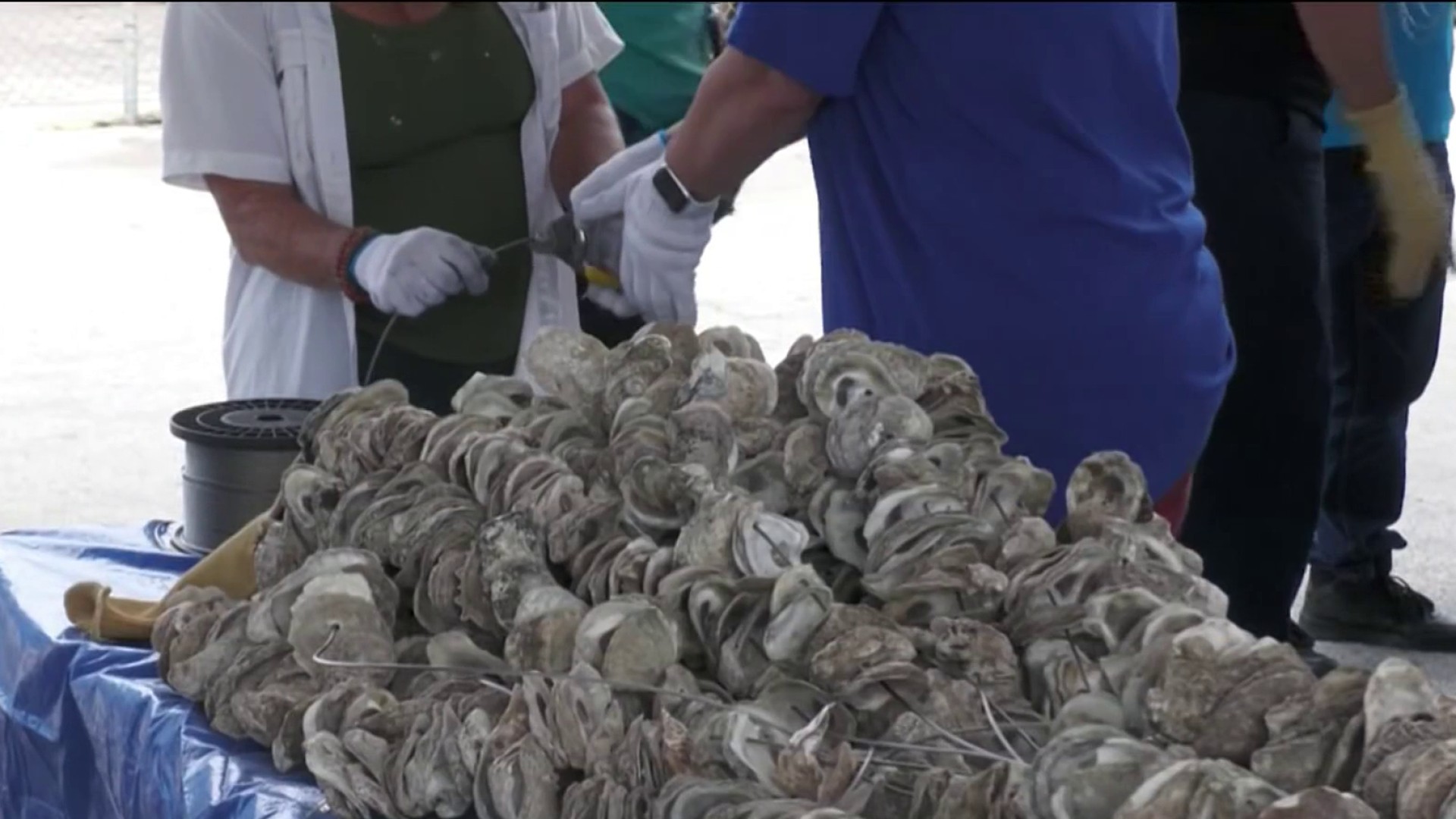
In honor of Black History Month, NBC 6 is celebrating the many men and women who championed civil rights throughout Florida.
Through Voices of the Civil Rights Movement, you can learn about the stories of those Floridians who paved the way for equality.
Here are some of those stories:
Arrested for Non-Violent Protesting
Civil rights activist Barbara B. Allen discusses her training to participate in civil rights protests and an altercation while protesting.
"I most certainly could not see some body spitting in my face and not spit back at them, but eventually it got there," Allen recalled of her mindset prior to receiving non-violent training.
Local
For more from Voices of the Civil Rights Movement, click here.
A Firebombing Incident
Gail Blattenberger traveled to St. Augustine in 1965 to participate in a tutoring program that was set up to educate students in segregated schools.
Blattenberger lived with local civil rights activist Lucille Plummer, whose home was targeted in a firebomb attack while Blattenberger was inside.
"I had seen real violence like the firebomb and that was just one instance," Blattenberger said. "There were a lot of things."
For more from Voices of the Civil Rights Movement, click here.
The Push for Equality Continues
Allie Braswell, former President and CEO of the Central Florida Urban League shares his views on the continuing push for equality.
Braswell says he is appreciative for those who marched on Washington during the Civil Rights Movement to bring about change.
"Now, we continue to march for economic growth and the ability to go out and still make a living in this country," Braswell said in the interview.
For more from Voices of the Civil Rights Movement, click here.
50 Years Later, the Struggle Continues
Melanie Campbell, President and CEO of the National Coalition on Black Civic Participation, discusses her involvement in the Civil Rights Movement and legacy of the March on Washington more than 50 years later.
"The theme ... is jobs, justice, peace and freedom ... so all of that is very current. And yet it's still commemorating what it was 50 years ago because it is a continuous struggle."
For more from Voices of the Civil Rights Movement, click here.
Protecting March Leaders
Shed Dawson served as a Marshall, or road guard, during civil rights demonstrations in St. Augustine. One of Dawson's top responsibilities was to protect march leaders.
"If Dr. King was marching or Andrew Young was marching, we'd all get up front and we'd be in that second row and so if anything should happen and they got attacked, they would fall down in the fetus position and then we would jump on top … to build, like, a pyramid around them to protect them from being hit."
For more from Voices of the Civil Rights Movement, click here.
Protesting Segregation: Violent Confrontations
J. Walter Hale served as a student leader in the NAACP while he attended Florida Normal and Industrial Memorial College in St. Augustine.
"We start with King down the street, and all of a sudden, it seemed like horses just materialized out of the concrete. Klansmen, the sheriff's department. And they started beating us like we were cattle," Hale recalled of a violent protest in 1964.
For more from Voices of the Civil Rights Movement, click here.
The "Father" of St. Augustine's Civil Rights Movement
Considered to be the Father of the Civil Rights Movement in St. Augustine, Florida, Dr. Robert Hayling discusses the fight for civil rights there and the violence that ensued, including high-powered rifle shots into his home, killing his dog.
"I will gladly admit to being a non-violent, militant civil rights activist," Hayling said of himself.
For more from Voices of the Civil Rights Movement, click here.
A Violent Episode in Northern Florida
In September 1963, Dr. Robert Hayling, "father" of the civil rights movement in St. Augustine, along with some activists, were caught spying on a Ku Klux Klan rally.
"They had beat us across the head and body and they had us piled on top of each other," Hayling recalled.
For more from Voices of the Civil Rights Movement, click here.
Integrating the Monson Motor Lodge Pool in St. Augustine
Former S.C.L.C. student leader James S. Jackson shares his civil rights activities, including marching with Andrew Young in St. Augustine on the day he was beaten and the integration of the Monson Motor Lodge Pool.
Jackson also spoke on attending the Selma March and getting arrested with Dr. Robert Hayling.
For more from Voices of the Civil Rights Movement, click here.
A Confrontation with the Ku Klux Klan
Civil rights activist James Jackson discusses the creation of a local NAACP Youth Council, involvement in protests and his personal account of a confrontation with the Ku Klux Klan.
"We were taken out of the car at gunpoint. Taken in the midst of the meeting," Jackson recalled of the day.
For more from Voices of the Civil Rights Movement, click here.
Putting Your Life on the Line to Protest
Civil right activist and Freedom Fighter Maude Burroughs Jackson discusses her involvement in the civil rights movement and attending mass meetings and night protests in St. Augustine, Florida.
"I participated in the night marches and they were very powerful marches. Very scary marches, sometimes," Burroughs said. "We received all kind of the threats.
For more from Voices of the Civil Rights Movement, click here.
Protesting for Equal Pay
Janie Young Price worked in a hospital as an RN when she learned that she was being paid less than her white co-workers for performing the same job. She then began her mission to fight for equal pay during the Civil Rights Movement.
"It made me angry and then it was a sad thing to think that somebody would make more money than you just because you were a different color," Price said reminiscing on how that moment made her feel. "I didn't think it was fair."
For more from Voices of the Civil Rights Movement, click here.
Hosting Dr. King
Civil rights activist Janie Price is native of St. Augustine and came of age in the city during segregation. Price was asked to house Dr. Martin Luther King during several of his Florida visits.
"I asked him one time, I said 'Dr. King, aren't you afraid to do what you do' ... he said 'you know I'm like this, if it's not worth dying for, it's not worth doing," recalled of one of her conversations with Dr. King.
For more from Voices of the Civil Rights Movement, click here.
Kneel-Ins to Integrate Churches
Civil rights activist Barbara Vickers recalls racial tension and violence in St. Augustine, and kneel-in protests during the Civil Rights Movement to integrate white churches.
"It was almost at the end of the service, so when this usher came down with the minister and he looked at me and he 'if I ever see your face around here, you'll be sorry," Vickers said of one of her most memorable kneel-in protests.
For more from Voices of the Civil Rights Movement, click here.
Honoring the Foot Soldiers
Civil rights activist Barbara Vickers wanted to create a monument to honor the Foot Soldiers of the Civil Rights Movement, but was met with much push back.
"They said maybe the city would go along with you if it's Dr. King, maybe you could put Dr. King. I said but it's not about Dr. King. It's about the little people who made Dr. King."
For more from Voices of the Civil Rights Movement, click here.
Video content owned and funded by Comcast Corporation, parent company of WTVJ



